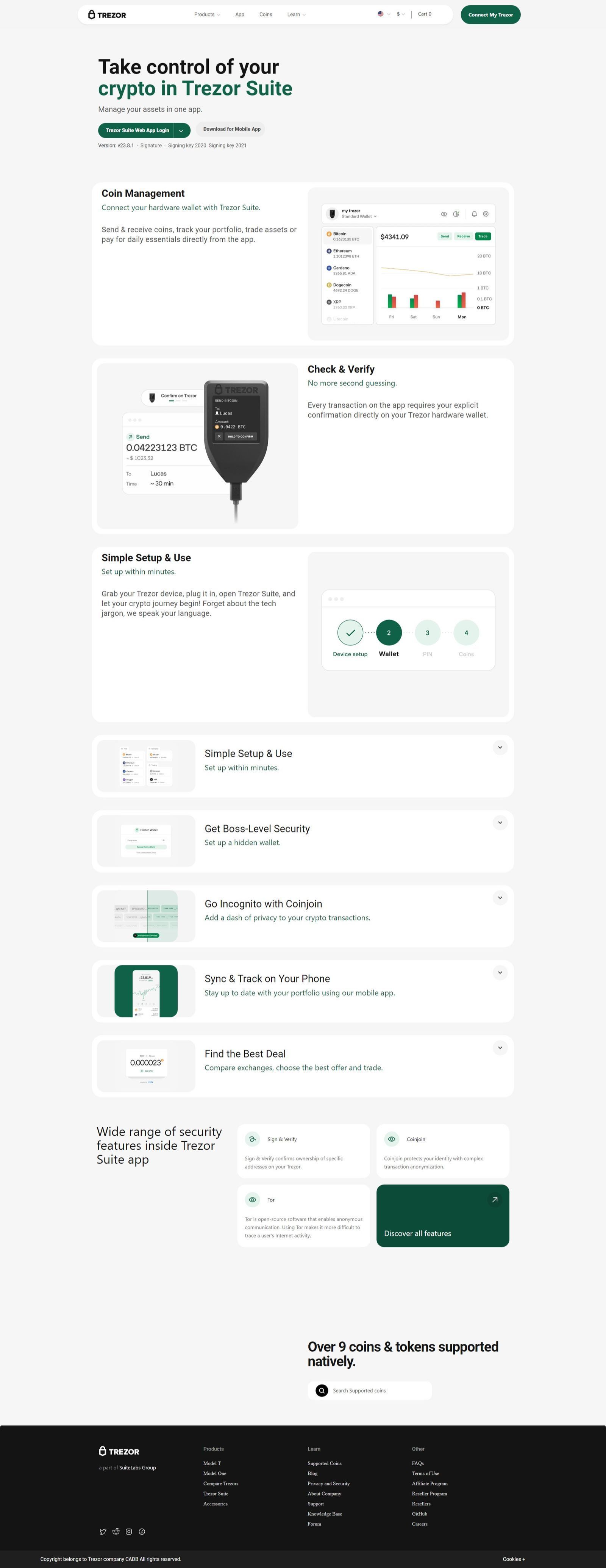Understanding Trezor Bridge: A Seamless Link Between Your Trezor and Browser
In the ever-evolving landscape of cryptocurrency security, hardware wallets have emerged as the gold standard for safeguarding digital assets. Among these, Trezor stands out for its robust security features and user-friendly interface. However, to unlock the full potential of your Trezor device, a vital piece of software called Trezor Bridge plays a pivotal role.
What is Trezor Bridge?
Trezor Bridge is a lightweight application that facilitates secure communication between your Trezor hardware wallet and supported web browsers. Essentially, it acts as an encrypted conduit, allowing your browser-based wallet interface (like the Trezor Suite or third-party apps) to interact directly with your hardware wallet.
Unlike browser extensions that may pose compatibility or security concerns, Trezor Bridge operates as a background service. It ensures your device can seamlessly sign transactions, retrieve balances, and manage accounts without exposing your private keys.
Why is Trezor Bridge Important?
Modern browsers have steadily moved away from supporting direct USB communication for security reasons. This makes applications like Trezor Bridge indispensable. It replaces the older U2F (Universal 2nd Factor) protocol, offering a more resilient and future-proof solution.
Moreover, by handling communication locally on your machine, Trezor Bridge minimizes attack vectors that malicious websites might exploit. It essentially ensures that even if you access your wallet through a browser, your private keys never leave the Trezor device, preserving the sanctity of your funds.
How Does Trezor Bridge Work?
The underlying algorithm of Trezor Bridge revolves around secure Inter-Process Communication (IPC) and HTTP-based local APIs. When you connect your Trezor, the Bridge runs a small server on your machine (usually at localhost:21325).
Here’s a simplified flow:
- You open Trezor Suite or a compatible web wallet.
- The application sends a request to Trezor Bridge via your local network interface.
- Trezor Bridge communicates with the hardware wallet over USB, obtains the necessary data (like signatures or addresses), and returns it securely.
- The local web application receives this data to process your transactions or display balances.
This architecture ensures cryptographic operations are always performed inside the hardware wallet, insulating them from potential browser vulnerabilities.
Installing Trezor Bridge
Setting up Trezor Bridge is remarkably straightforward:
- Visit the official Trezor download page.
- Download the Bridge installer compatible with your operating system (Windows, macOS, or Linux).
- Follow the guided installation. Once installed, Trezor Bridge runs automatically in the background whenever your computer starts.
No browser extensions are required, which reduces clutter and security risks.
Final Thoughts
In summary, Trezor Bridge is an elegantly simple yet critically important tool that underpins the secure operation of your Trezor hardware wallet. By acting as a silent intermediary between your browser and device, it ensures your private keys remain truly offline, adhering to the highest standards of cryptocurrency security. For anyone serious about protecting their digital wealth, understanding and utilizing Trezor Bridge is not merely advisable—it’s essential.
Made in Typedream